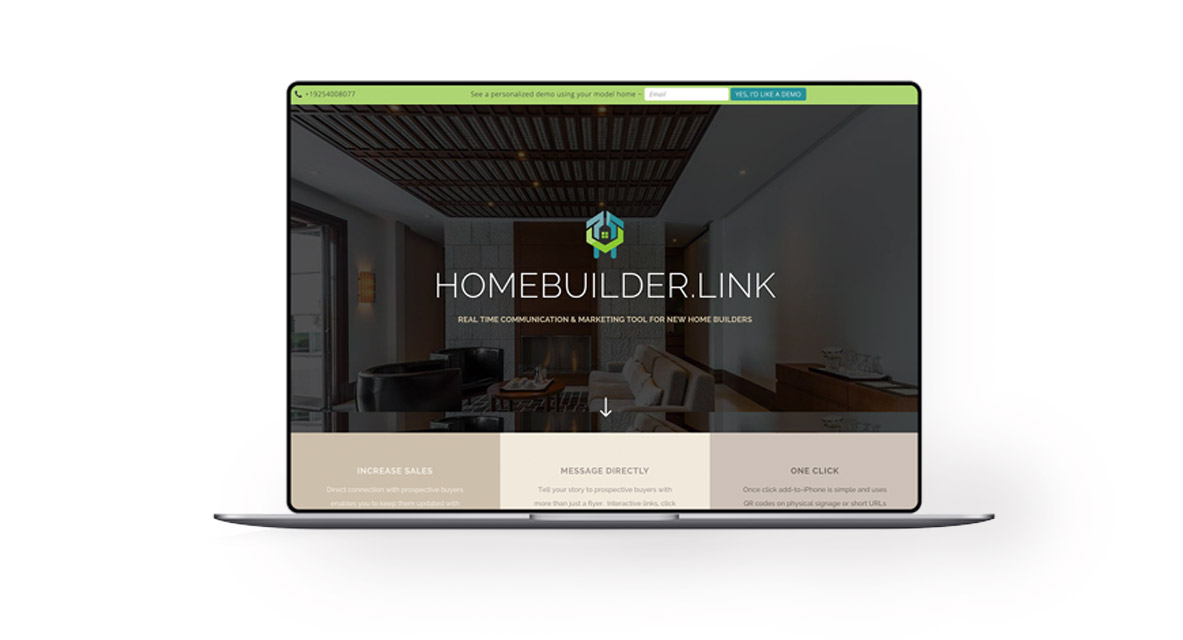
Why New Home Construction Needs Mobile Marketing in 2026
The homebuilding industry is on the cusp of a transformation. While traditional marketing methods like print ads and billboards still hold value, they lack the precision and engagement potential of modern digital marketing tools. In today’s hyper-connected world, homebuilders who effectively leverage mobile marketing and geofencing strategies will gain a significant edge over their competitors.
While interest rates may actually be hovering on the “low end” of previous normals (early 1990s anyone?), the mindset of home purchasers today is that rates are high, and the impending re-regulation of the real estate industry, prompted by NAR settlements, etc, means that the average home buyer is not exactly in a warm and fuzzy place when it comes to borrowing money and jumping into home ownership with both feet.
The rapidly multiplying plethora of “buy vs rent” calculators, like this one from NerdWallet, aren’t doing the real estate industry any favors either.
Let’s explore the compelling reasons why new home construction companies and builders should embrace mobile marketing and integrate it seamlessly with geofencing and push notifications to deliver targeted, real-time marketing messages that resonate with prospects and current customers.
The Rise of the Mobile-First Consumer
The landscape of consumer behavior has undergone a seismic shift. Smartphones are no longer just communication devices; they’re gateways to information, entertainment, and – crucially for homebuilders – the homebuying journey. A staggering 97% of Americans now own cell phones, and a growing majority (85%) use them for online shopping and research https://www.pewresearch.org/internet/fact-sheet/mobile/. This means that potential homebuyers are actively searching for new homes, researching neighborhoods, and even virtually touring properties – all from their mobile devices.
For homebuilders, this presents a golden opportunity. By implementing a robust mobile marketing strategy, they can position themselves directly in the path of their target audience. Mobile marketing allows for highly targeted messaging based on demographics, location, and browsing behavior. This ensures that potential homebuyers receive relevant information about new developments, open houses, and special offers at the precise moment they’re most receptive.
The Power of Location-Based Marketing with Geofencing
Imagine a scenario where a young couple who has been pre-approved for a mortgage is browsing new listings on their phone while driving through a desirable neighborhood. Suddenly, a notification pops up on their screen showcasing a beautiful new home development in the very area they’re exploring. This is the power of geofencing in action.
Geofencing allows homebuilders to create virtual perimeters around specific locations, such as competitor billboards, existing developments, or even high-traffic areas frequented by potential buyers. When a mobile device with location services enabled enters or exits a geofenced area, a pre-designed marketing message can be triggered.
This targeted approach ensures that the right message reaches the right person at the right time, significantly increasing the likelihood of engagement and conversion.

The Allure of Push Notifications
Timely and Permission Based
Push notifications are brief, permission-based messages that appear directly on a mobile device’s screen. Unlike text messages, which can be perceived as intrusive, push notifications offer a less disruptive way to deliver timely updates and promotions.
For new homebuilders, push notifications can be used to:
- Alert potential buyers about upcoming open houses or special events happening in their area of interest.
- Showcase virtual tours and 3D renderings of new properties.
- Offer exclusive discounts or incentives to those who express interest.
- Provide real-time updates on construction progress and estimated completion dates.
The key to success with push notifications lies in personalization and offering real value. Sending generic messages will likely be ignored, but targeted notifications that address a prospect’s specific needs or interests are far more likely to generate a positive response.

Integrating Mobile Wallets
Convenience Meets Marketing
Mobile wallets like Google Wallet and Apple Wallet have become an integral part of modern life, allowing users to store credit cards, boarding passes, and even loyalty programs. Leverage this technology to provide a seamless and convenient experience for potential buyers.
Here’s how:
- Create a digital loyalty program: Offer points or rewards for attending open houses, scheduling appointments, or referring friends. These points can be redeemed through the mobile wallet for exclusive discounts or merchandise.
- Store digital home tours: Allow potential buyers to save virtual tours of properties directly to their mobile wallets for easy access later.
- Provide keyless entry: Integrate mobile wallet functionality to grant access to model homes or construction sites for qualified leads.
- Simplify mortgage pre-approval: Partner with lenders to facilitate the pre-approval process directly through the mobile wallet, eliminating unnecessary paperwork.
Interested in finding out more about mobile wallet marketing and how your business can reach more qualified leads using a very simple solution that’s effective and easy to configure?
By integrating mobile wallets into their marketing strategy, home builders can not only enhance convenience for potential buyers but also create valuable touchpoints that keep their brand top-of-mind throughout the home buying journey.
Building a Winning Mobile Marketing Strategy
So, how can homebuilders translate these concepts into a successful mobile marketing strategy? Here are some key steps:
Define your target audience and conduct thorough market research to understand the demographics, online behavior, and pain points of your ideal homebuyer.
Develop a compelling mobile website that is optimized (via responsive web design) for mobile devices with a user-friendly interface and fast loading times.
Embrace mobile apps and consider developing a dedicated mobile app that allows users to browse listings, explore floor plans, schedule appointments, and connect with sales representatives directly.
Learn to leverage social media and integrate your social media channels with your mobile marketing efforts. Encourage users to follow your social media pages for exclusive updates and behind-the-scenes glimpses into your new developments.
Invest in high quality visual assets that utilize captivating photos, virtual tours, and drone footage to showcase your properties and give potential buyers a realistic sense of the homes and communities you offer.
A/B optimization by continuously testing and refining your mobile marketing campaigns. Analyze data to understand which messaging resonates best with your audience and adjust your strategies accordingly.
Don’t forget to measure your results and keep track of your ROI. Set clear goals for your mobile marketing initiatives and use analytics tools to track key metrics like website traffic, lead generation, and conversion rates. This will help you measure the success of your campaigns and ensure you’re getting the most out of your investment.
The Future of NEW Home building is Mobile
The mobile revolution has fundamentally changed the way consumers interact with businesses. By embracing mobile marketing strategies and harnessing the power of geofencing, push notifications, and mobile wallets, home construction companies can position themselves for success in the ever-evolving digital landscape.
By delivering targeted, timely, and personalized messages that resonate with potential buyers at critical points in their homebuying journey, mobile marketing empowers homebuilders to build stronger relationships with their customers and ultimately achieve their sales goals.
